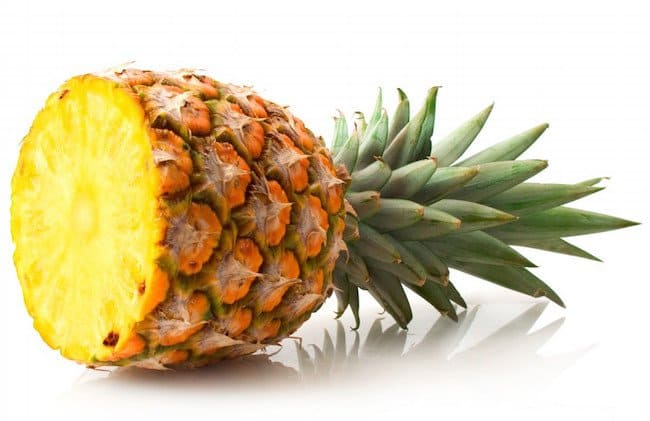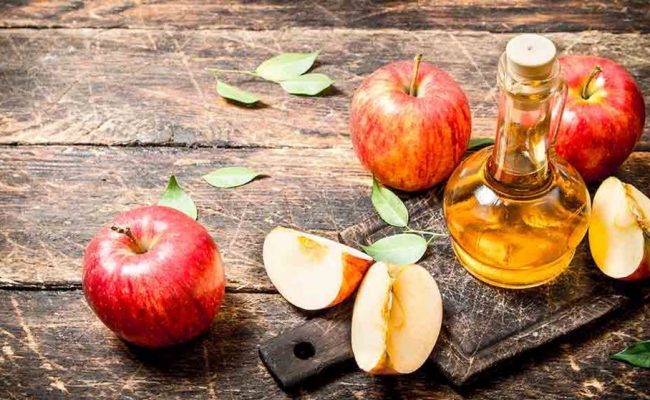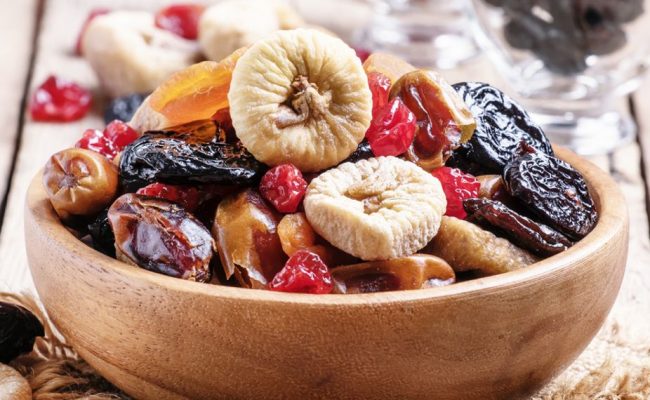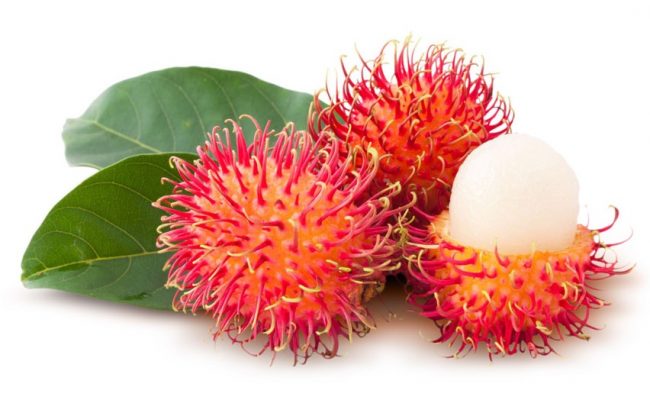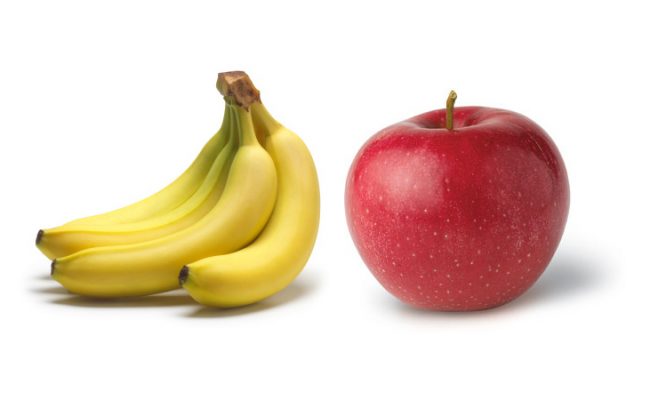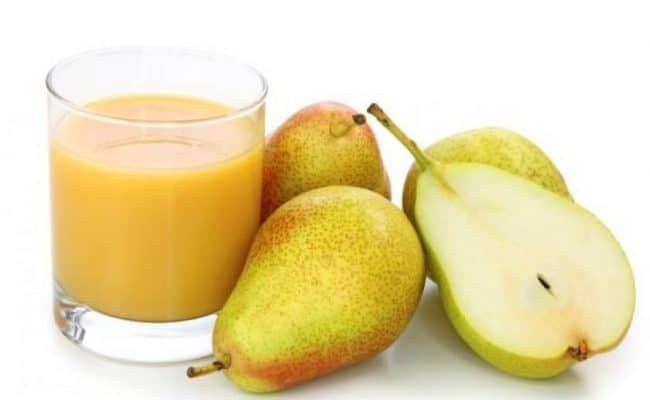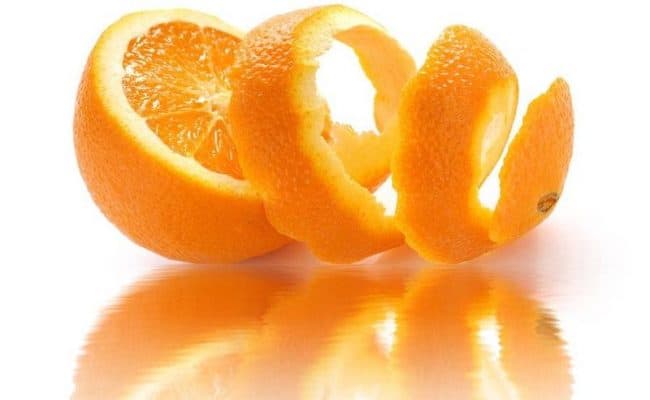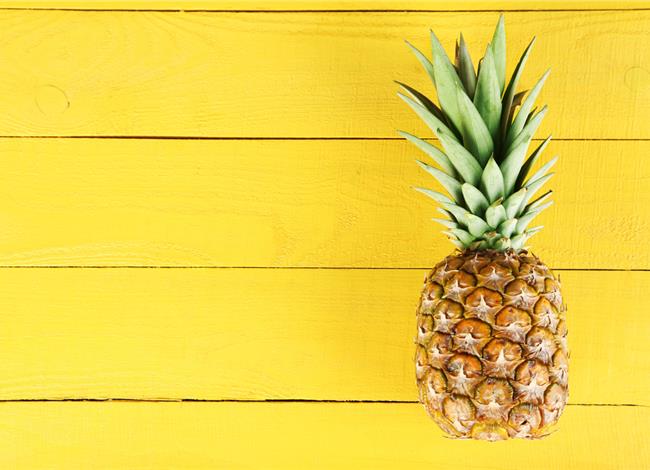
Pineapple originates from Central and South America. It is said Christopher Columbus discovered pineapple in the Caribbean and took it back to Europe. Early colonists in America considered pineapple an expensive treat because of their rarity.
Pineapple has been used to treat various ailments for centuries. Pineapple may be useful for aiding digestion and inflammation due to its antioxidants and enzymes.
Like all other fruits, pineapple is a good source of vitamin C, antioxidants and fiber.
However, pineapple has some unique benefits like being a good source of the mineral manganese and an enzyme called bromelain.
Bromelain has been shown from research studies to have some promising health benefits.
Bromelain is also what may aid digestion and help lower inflammation related to asthma and other health conditions.
Adding any fruits and vegetables to your diet is recommended for many health reasons.
However, when considering adding fruit juice or real fruit, it’s best to opt for fruit over juice.
Pineapple juice has the vitamins and minerals from pineapple, but it doesn’t have the fiber that can help slow the absorption of the sugar from pineapples.
Vitamin C and antioxidants
One cup of fresh pineapple chunks provides about 130% DV of vitamin C.
Vitamin C acts as a protector for body cells against damage caused by harmful substances like carcinogens.
In fact, studies suggest a higher intake of fruits and vegetables can help lower risk for cancer.
This may be in part because of the high intake of vitamin C from fruits and vegetables (1).
Vitamin C is also needed to build collagen. Collagen is needed to form gums, skin, bones, cartilage and ligaments.
Therefore, a diet high in vitamin C may help promote bone, skin and gum health.
Besides vitamin C, pineapple is a source of other antioxidants (2).
Yellow fruits and vegetables are a good source of antioxidants carotenoids and lutein which can help protect eye cells from damage associated with age related macular dengeneration (3).
Health experts recommend eating all colors of the rainbow everyday to get the most nutrients out of all fruits and vegetables.
Pineapples are a way to get yellow color in your diet, but you should aim to get red, orange, green, blue, purple and white fruits and vegetables in your diet too.
Good source of Manganese
A serving of one hundred grams of pineapple provides about 927 mcg of manganese (just under 1 mg).
The Adequate Intake (AI) for manganese for male adults is 2.3 mg per day and for female adults is 1.8 mg per day.
Manganese has antioxidant role in the body and is involved with the metabolism of carbohydrates, protein and fat.
Manganese is also involved with formation of cartilage, bones and healing wounds.
Having a low intake of dietary manganese has been associated with increased risk for osteoporosis and type 2 diabetes (4).
Therefore, eating foods high in manganese, like pineapple, may help lower risk for these conditions.
Use caution with getting manganese from supplements; manganese does have a tolerable upper limit.
Getting too much from supplemental form could have negative side effects. If you take antacids or laxatives that are magnesium based, they could interfere with the absorption of manganese from pineapple and other foods.
Speak with your healthcare team if you have questions regarding this.
Bromelain’s health benefits
Pineapple is one of the only foods that is a natural source for the enzyme bromelain. Bromelain is an enzyme that can aid in the breakdown of proteins.
For this reason, pineapple has been used for centuries as an aid for digestion.
The University of Maryland Medical Center (5) also suggests bromelain is effective for reducing inflammation associated with infection and injury.
Some studies suggest bromelain can increase healing time associated with surgery, sprains, strains or other muscular injuries.
A 2005 study (6) from Germany also suggests bromelain may help treat sinusitis in children.
Some studies also show a link between bromelain and lowering pain and inflammation associated with arthritis.
More research is needed, but some studies suggest bromelain may help lower pain associated with rheumatoid arthritis.
A 2012 study (7) with mice found bromelain may help lower inflammation associated with asthma.
More research is needed in humans, but researchers concluded bromelain may be an adjunct therapy for allergies and/or asthma conditions.
Most of these studies use high doses of bromelain, more than what is found in pineapple.
However, the bromelain amount from pineapple could still translate to having health benefit.
More research is needed on the amount of bromelain recommended for benefiting lowering inflammation.
If you are interested in taking a bromelain supplement, speak with your healthcare team first. Giving bromelain supplements to children is not recommended.
Is pineapple Juice better or the whole fruit?
When deciding between 100% fruit juice or fruit, almost in all circumstances it is recommended to choose whole fruit over juice.
Fruit is a source of natural sugar, but the sugar is more concentrated in juice. Also, juice does not have fiber to slow the absorption into the blood stream.
Some studies have suggested fruit intake may help lower risk for type 2 diabetes, but fruit juice does not.
In fact, consuming fruit juice may increase risk for type 2 diabetes (8).
Canned pineapple can also have added sugar in the syrup and may be slightly lower in nutrients compared to fresh pineapple.
For optimal freshness and nutrient value, choose fresh or frozen pineapple.
If you are on medication or have been advised to follow a low potassium diet, consult your healthcare team before increasing your intake of pineapple or pineapple juice.
Pineapples are safe to consume, but people following a low potassium diet need to monitor intake of fruits and vegetables.
People with acid reflux may also notice flare ups when increasing intake of pineapple, but individual responses can vary.
